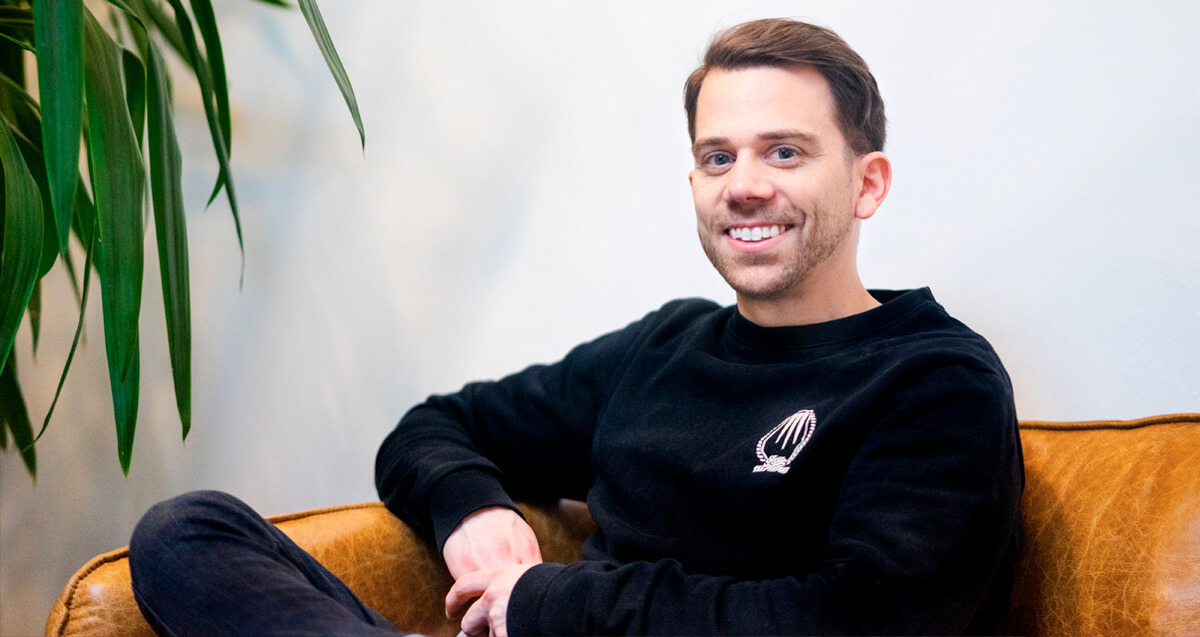Jason Conger
Head of User Acquisition

This Q&A was conducted when Jason was a Head of User Acquisition at Wooga. Currently, Jason is a Performance Marketing Lead at Supercell.
Jason Conger’s passion for mobile marketing led him to the heart of Berlin and casual game developer Wooga. Jason leads a team of user acquisition experts who bring together a community for story-driven casual games. Before joining Wooga, Jason steered Backflip Studios’ user acquisition and ad monetization team and drove performance marketing at Zeta Global. Drawn to connecting the dots between marketing and data, Jason strives to bring meaningful impact to games at Wooga.
In your own words, tell us about the app(s) that you manage?
At Wooga, I’ve had the opportunity to work on a number of world-class games like Jelly Splash, Pearl’s Peril, Tropicats and more. Our most well-known and successful game is June’s Journey, a beautiful hidden object game set in the glamorous 1920s. You dive into the captivating story of June Parker, an amateur detective who travels the world to uncover her family secrets. June is beloved by millions of players worldwide and has been the highlight of my career. The attention to detail of the hidden object scenes, the carefully crafted artwork of the decorations, and the story brought to life in and out of the game have come together to make June’s Journey a remarkable success.
How did you get started in mobile marketing?
A long-winded story that eventually comes around full circle (I promise!)
I went to the University of Colorado and began studying Game Design & Development. I had dreamt of designing video games but early on realized I wasn’t cut out for Computer Science & Engineering—so I switched gears towards Business & Innovation. I had an internship in school where I learned SEO and marketing for an online figure skating marketplace that worked with Google Analytics. This was my first exposure to digital marketing back in 2009. I did this for a few years and later graduated with a Bachelor of Innovation in Business Administration with an emphasis in Creative Communications.
Shortly after graduation, I started a business with a classmate (which I would work on for the next four and a half years). What began as a brew-it-yourself home brew shop transformed into a start-up craft brewery called 53 Peaks Brewing Company. I handled the business side of the operation, managing our social media, building a brand, and raising capital. Eventually, we closed the chapter on our brewing adventures (hopefully something I’ll come back later to).
Throughout my brewing venture, I also worked at Intela—an email and affiliate marketing company in Boulder. I started as Email Marketing Manager, and after some rebranding and acquisitions, I led a team of analysts working globally throughout offices in NY, London and Hyderabad. At this point, I connected with a contact at Backflip Studios in Boulder, Colorado. Backflip created Paper Toss, Ninjump and their most successful hit, Dragonvale. I joined Backflip as User Acquisition Manager, finally circling back to my dreams of working in games. It just so happened to be on the side of marketing, not making them.
What do you like most about mobile marketing?
I like driving impact to an organization through problem-solving. In mobile, there is always something to do. Diving into hundreds of thousands of rows of data, making an analysis, figuring out how to track traditional marketing campaigns with data modeling, or unlocking new targeting segments from marketing surveys.
What does it take to succeed in mobile marketing?
- Patience: There will be ups and downs working in a dynamic market that goes through constant change. Be willing to listen, learn, and adapt.
- Persistence: Iterate, reiterate and reiterate again. Make a lot of mistakes but learn from them.
- Flexibility: Learn to communicate with people working on different aspects of a product and in the mobile ecosystem.
- Innovation: Mobile is an ever-evolving career in which you can’t stay static; otherwise, you won’t make it through the finish line. The goalposts are always moving, so roll with the punches.
This is what makes mobile exciting. Being in the industry means my job is never dull, and there are always new problems to solve.
What strategies work best to convert installs into engaged app users?
First, you need a great product. The market is highly competitive, that every part of the business has to do its part. The First Time User Experience is pivotal to engage a new player with your app. People have limited time with competing entertainment, so if a player downloads your app—make the most of it, or they will be gone.
From a UA perspective, it’s essential to understand the product and the in-app events relevant for indicating a quality player from a UA perspective. Whether that’s a certain level completed, a milestone achievement, a feature unlocked, or a purchase made, you should understand what events drive meaning.
In the past year, what is one tip you can share which made the biggest performance difference for your UA strategy?
2020 was especially interesting because of all the unpredictability in the world. It felt as if we were on a constant lookout for what was going on in the market, what other experts were saying, and anticipating / understanding trends.
The most significant thing for us was following our vision through proactive communication. We set a mindset for the studio early on for 2020 to be the year of growth. We had budgets set, but we adjusted them. We set plans but scrapped them and re-planned. We set goals, which we revised. If we didn’t stay flexible and communicated, we would not have grown in 2020.
What advice can you offer marketers to successfully re-engage mobile app users?
Re-engagement is tricky because there’s not a standard playbook for how to do it successfully. Every company does it differently, and the scale necessary for which re-engagement adds value must be really high.
We focused on driving incremental value in our re-engagement efforts. This may lead to a wild chicken and egg problem—where you don’t have enough volume to provide incremental value, but there isn’t incremental value because you don’t have enough volume. It was a challenge that required us to take a risk and invest in the tools and the team behind it. We closely collaborated with our data engineers and data scientists to figure out:
- How to measure the impact
- How to split our audiences
- How to report on our results
Teaming up with Marketing was also crucial because we built different creatives. Remember: not everything that works in UA will work in re-engagement. If we wanted to push various features, rewards, or decoration sets, it would be entirely different for re-engagement.
What’s your top tip when it comes to mobile ad creative?
The most important thing is understanding your audience. Know who your audience is in combination with your brand and how it is perceived. If you don’t understand this well, it’s challenging to get creative right. We have some absolute rock stars for our marketing team; Melanie Zimmermann and Valentine Ledour are a few of the geniuses behind June’s Journey brand building. They worked to build the brand of our product to figure out what are the motivations of our players.
When it comes to UA, make sure you test everything. There are so many placements on Facebook, AdWords, DSPs and more where you have a ton to test. The format of the video, video length, messaging, tone, style. There are limitless possibilities.
What advice can you offer to help marketers combat mobile ad fraud?
If something looks and feels off, investigate the crime scene. Blatant fraud usually leaves traces. Sophisticated ad fraud, though, is complicated to spot. We work with our attribution partner, Adjust, to stay up-to-date on the best practices. Fraudsters will always be a step ahead, so it’s important to be protected as best as you can with the latest technology. Wooga is teaming up with the Coalition Against Ad Fraud, an Adjust initiative to combat ad fraud in the industry through education, standardization and legislation.
What are your top 3 go-to resources for keeping up with the mobile ad tech industry?
- UA Society for communicating with other mobile professionals
- Mobile Dev Memo for reading about the latest (and usually not the greatest) happenings in the industry
- App Annie for keeping up with our competitors

